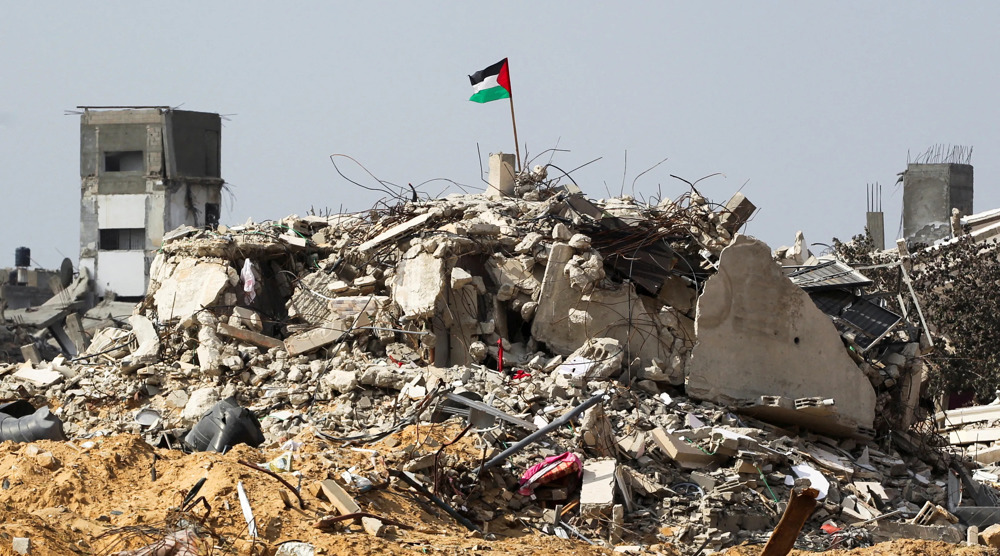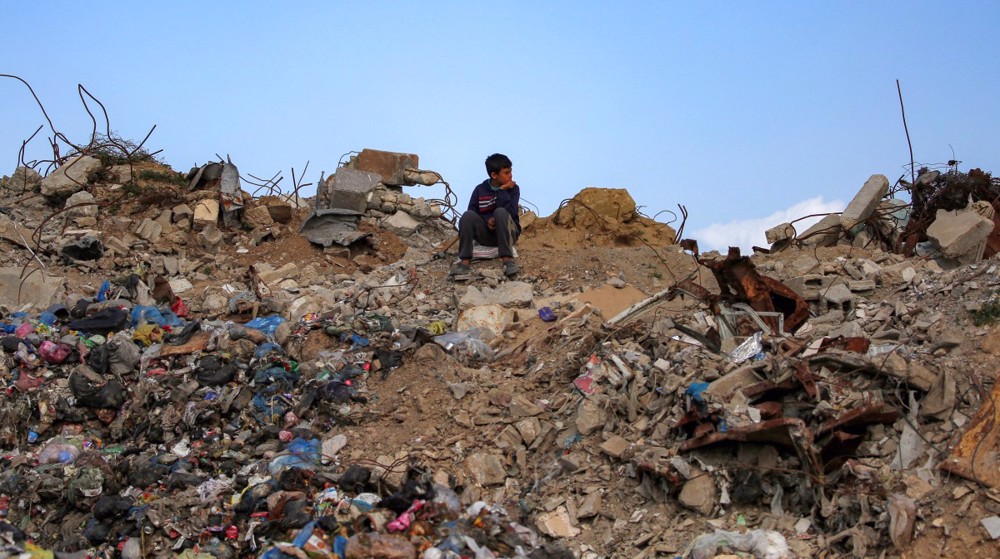In clear U-turn, Israel says ready to reopen Golan crossing with Syria
In a surprising change of tone, Israel has expressed readiness to reopen the Quneitra border crossing with Syria in the Golan Heights, now that the Arab country’s armed forces have purged militant groups from there.
“We are ready to open the crossing as it was before, and now the ball is in the Syrian court,” Israeli minister for military affairs Avigdor Lieberman told reporters as he toured the border area on Thursday.
Lieberman, who has a long history of hurling threats of doom and destruction against Syria and President Bashar al-Assad, added that Israel never wanted conflict with Syria and was ready to ensure a 1974 armistice agreement between the two sides is strictly observed.
"We said from the beginning that we have no interest in meddling in the … war within Syria and we have never intervened. What interests us is ensuring the security” of Israelis, Lieberman said.
The Golan Heights is a Syrian territory, which Tel Aviv has been occupying since 1967 and claims as its own territory despite international criticism.
In August, the United Nations Disengagement Observer Force (UNDOF) returned to the border between Syria and the occupied territories, four years after it was shuttered due to militant attacks.
“Once the crossing is opened from the other side, we will consider everything in accordance with the security circumstances," Lieberman said.
Eating the humble pie?
Syria has been struggling with foreign-backed militancy since 2011 in a battle that has left large parts of the country in ruins, destroyed most of its infrastructure and killed hundreds of thousands of people.
While the US and certain governments in the region have been cited as supporters of Daesh and other anti-Assad militant groups, it is common knowledge today that Israel has also had its fair share in helping the terror outfits survive.
Throughout their battles, Syrian army forces have time and again discovered Israeli weapons and equipment in large volumes from terrorist hideouts. Israeli hospitals have also taken in some of the militants injured in Golan areas.
Read More:
The Israeli air force has carried out regular airstrikes against the Syrian army and government targets across the country, a trend that Israeli Prime Minister Benjamin Netanyahu claims are aimed at pushing Iranian military advisors helping Damascus in its anti-terror fight out of the country.
Moshe Ya’alon, Lieberman’s predecessor, admitted last year that Tel Aviv had formed a tacit alliance with Daesh, saying the group had "immediately apologized" to Tel Aviv after firing "once" into Israel.
The most telling evidence of Israel’s support, however, came earlier this month, after the Syrian ministry for military affairs revealed that, since 2016, Tel Aviv had been providing militants in Syria with light weapons and substantial amounts of cash—all part of the so-called Operation Good Neighbor.
Lieberman’s comments come against the backdrop of Syria’s major victories against terrorists, drawing an outlook for the country that is far more different than what Tel Aviv and its allies had hoped for over the past years.
The apparent call for de-escalation could also be a product of strained relations with Russia.
Ties between Israel and Russia spiraled down to historic lows last week, after Israeli fighter jets pounding Syrian government targets misled the Syrian air defenses into shooting down a Russian surveillance plane by using it as a shield.
Keith Preston, a political analyst in Virginia, said Israel didn’t want to lose its strategic ties with Russia and get caught in the ongoing geopolitical standoff between Moscow and Washington in the region.
“Instead, I think, Israel is thinking to play the two sides off against one another,” Preston told Press TV.
All in all, the sudden about-face more than anything else shows how the Syrian government, with the help of its allies, has been able to turn the tide and convince even the most optimistic Israeli officials that it is here to stay.
Over 2,000 Britons served in Israeli military during Gaza genocide: Report
Houthi: Iranian, Yemeni revolutions inspire Islamic nation in face of enemy plots
Iran defeating sanctions for decades since Islamic Revolution victory
AIPAC faces challenge as new PAC seeks to end US backing of Israel
VIDEO | Press TV's news headlines
Iran president hails ‘exceptional’ turnout in Islamic Revolution anniversary rallies
VIDEO | Pro-Palestine protesters rally in Melbourne on final day of Israeli president's Australia trip
Gaza genocide's death toll may exceed 200,000: Report










 This makes it easy to access the Press TV website
This makes it easy to access the Press TV website